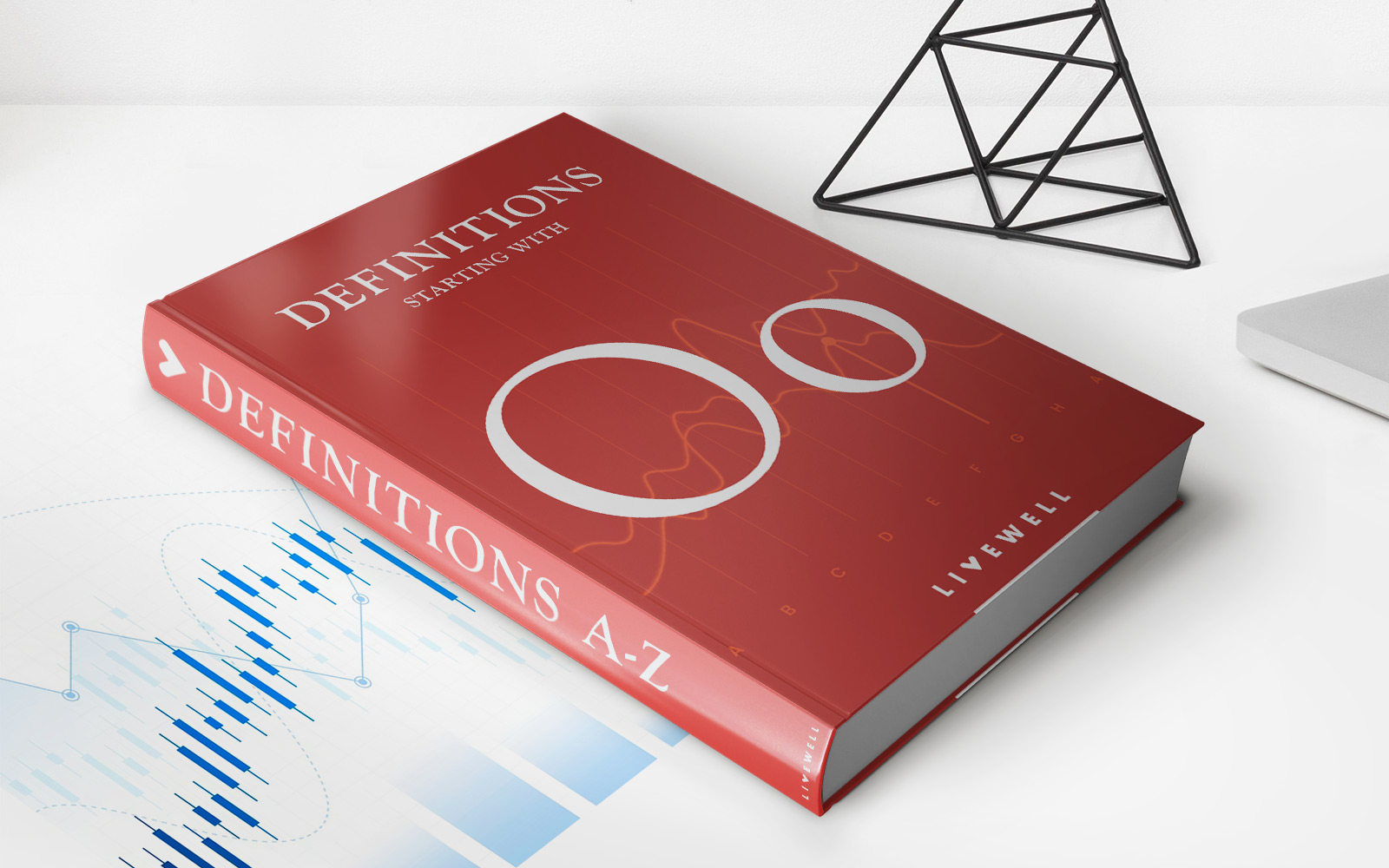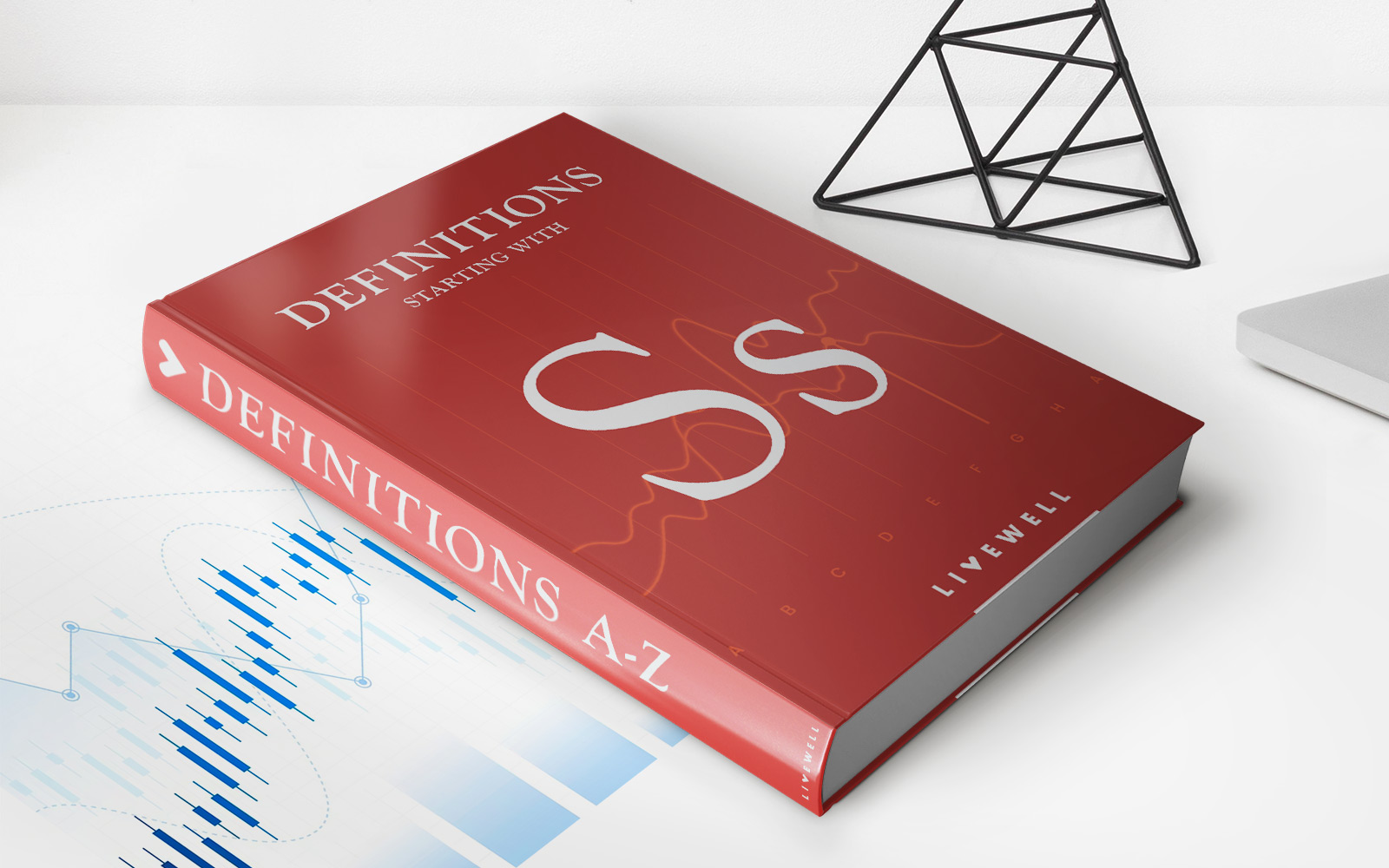

Finance
How Can I Use 401K Money For Gold Purchase
Modified: February 21, 2024
Learn how to use your 401K funds to invest in gold and secure your financial future. Get expert advice on finance and retirement planning.
(Many of the links in this article redirect to a specific reviewed product. Your purchase of these products through affiliate links helps to generate commission for LiveWell, at no extra cost. Learn more)
Table of Contents
- Introduction
- Understanding 401K Accounts
- Regulations and Restrictions
- Options for Using 401K Money for Gold Purchase
- Option 1: Rolling Over 401K to a Gold IRA
- Option 2: Taking a 401K Loan for Gold Purchase
- Option 3: Taking an Early Withdrawal from 401K for Gold Purchase
- Pros and Cons of Using 401K Money for Gold Purchase
- Factors to Consider Before Making a Decision
- Conclusion
Introduction
Investing in gold has long been considered a safe haven for protecting one’s wealth. In uncertain economic times, many individuals seek to diversify their investment portfolios by including precious metals like gold. If you have a 401K retirement account and are interested in purchasing gold, you may be wondering if and how you can use your 401K funds for this purpose.
In this article, we will explore the various options for using 401K money to buy gold, along with the regulations and restrictions that may apply. We will also discuss the pros and cons of utilizing your retirement savings for this alternative investment, as well as the factors you should consider before making a decision.
Understanding the rules and guidelines of 401K accounts is crucial before proceeding with any investment transactions. This article aims to provide you with a comprehensive guide so that you can make an informed choice regarding the use of your 401K funds for a gold purchase.
Understanding 401K Accounts
A 401K account is a tax-advantaged retirement savings plan offered by employers to their employees. It allows individuals to contribute a portion of their pre-tax income to a retirement fund, where it can grow tax-free until retirement. These contributions are often matched by the employer, further boosting the savings potential.
One of the key advantages of a 401K account is the ability to invest the funds in a variety of financial instruments, such as stocks, bonds, mutual funds, and exchange-traded funds (ETFs). However, the specific investment options available to you will depend on the plan offered by your employer.
401K accounts are subject to certain rules and regulations set by the Internal Revenue Service (IRS) to ensure that the funds are used for retirement purposes. One such restriction is the age requirement for withdrawing funds without penalty. Typically, individuals must be at least 59 ½ years old to make penalty-free withdrawals from their 401K accounts.
It is important to note that while you have control over the investments within your 401K account, you may have limited flexibility in terms of withdrawing the funds for non-retirement purposes. Withdrawing funds from a 401K account before reaching the age of 59 ½ may result in early withdrawal penalties and taxes.
Now that we have a basic understanding of 401K accounts, let’s delve into the regulations and restrictions that govern the use of 401K funds for gold purchases.
Regulations and Restrictions
Using 401K funds for a gold purchase is subject to certain regulations and restrictions imposed by the IRS. These rules are in place to ensure that the funds are used for retirement purposes and to maintain the tax-deferred status of the account. It is important to be aware of these regulations before considering using your 401K money to buy gold.
One common restriction is that the gold must meet certain criteria to be eligible for purchase using 401K funds. The IRS requires that the gold be considered a “collectible” under their guidelines. This means that certain types of gold coins or bars, such as those that have been minted privately or have a high collectible value, may not be eligible for purchase with 401K funds.
Furthermore, if you are considering purchasing physical gold as opposed to investing in gold-related financial instruments, such as gold exchange-traded funds (ETFs), there may be additional requirements and restrictions. For instance, the gold must be held by a custodian or trustee approved by the IRS, and not by the account holder personally.
Another important consideration is the potential tax implications of using 401K funds for a gold purchase. If you opt for a direct distribution from your 401K to purchase gold, it could be treated as a taxable event. The funds withdrawn would be subject to income tax at your current tax rate, and if you’re under the age of 59 ½, you may also incur an additional 10% early withdrawal penalty.
Alternatively, you may have the option to rollover your 401K funds into a self-directed Individual Retirement Account (IRA) that allows for investment in gold or other precious metals. This could provide a tax-efficient way to access your retirement funds for a gold purchase, but it’s important to consult with a financial advisor to understand the specific rules and requirements involved.
Now that we have a better understanding of the regulations and restrictions surrounding the use of 401K funds for gold purchases, let’s explore the options available to you for utilizing your retirement savings to invest in gold.
Options for Using 401K Money for Gold Purchase
If you are interested in purchasing gold using your 401K funds, there are a few different options available to you. These options will depend on your specific circumstances, the plan offered by your employer, and the regulations governing your 401K account.
Option 1: Rolling Over 401K to a Gold IRA
One of the most popular ways to use 401K funds for a gold purchase is by rolling over your existing 401K account into a self-directed Individual Retirement Account (IRA) that allows for investment in gold. By doing so, you gain more control over your retirement investments and have the ability to include gold or other precious metals in your portfolio.
This option typically involves opening a Gold IRA with a custodian or trustee that specializes in precious metal investments. The custodian will handle the process of transferring your 401K funds into the Gold IRA, and you can then use those funds to make a gold purchase.
Option 2: Taking a 401K Loan for Gold Purchase
Another option to consider is taking a loan against your 401K account for the purpose of purchasing gold. This option allows you to use a portion of your 401K funds as a loan, with the intention of paying it back over time.
It’s important to note that not all 401K plans offer loan options, and those that do may have specific guidelines and limitations. Additionally, taking a loan from your retirement account means you are withdrawing funds that would have otherwise continued to grow tax-free for your retirement. It’s advisable to consult with a financial advisor to understand the potential implications of taking a loan from your 401K for a gold purchase.
Option 3: Taking an Early Withdrawal from 401K for Gold Purchase
If you are willing to accept the potential tax consequences and penalties, you may consider taking an early withdrawal from your 401K account to fund a gold purchase. However, it is important to consider that this option should be a last resort, as you will likely incur income taxes on the withdrawn amount, as well as a potential early withdrawal penalty if you are under the age of 59 ½.
Before pursuing this option, it’s crucial to evaluate the long-term impact on your retirement savings and consult with a financial advisor to ensure you fully understand the tax implications and potential risks.
Each of these options comes with its own set of pros and cons, and the right choice will depend on your individual circumstances and financial goals. It’s essential to conduct thorough research and consult with a financial advisor to determine the best option for using your 401K funds to purchase gold.
Option 1: Rolling Over 401K to a Gold IRA
One of the most popular options for using 401K funds to purchase gold is by rolling over your existing 401K account into a self-directed Individual Retirement Account (IRA) that allows for investment in gold. This option provides you with more control over your retirement investments, allowing you to include gold or other precious metals in your portfolio.
To initiate the rollover process, you would need to open a Gold IRA with a custodian or trustee that specializes in precious metal investments. The custodian will handle the process of transferring your 401K funds into the Gold IRA, ensuring that it remains a tax-advantaged retirement account.
Once the funds are in the Gold IRA, you have the flexibility to invest in various forms of gold, such as gold coins or gold bullion. It is important to note that not all gold investments are eligible for purchase within a Gold IRA. The IRS imposes criteria on the types of gold that are considered eligible. Generally, the gold must meet certain purity standards, such as being at least 99.5% pure.
One advantage of rolling over your 401K to a Gold IRA is the potential for tax benefits. Like a regular 401K or IRA, the Gold IRA offers tax-deferred growth, meaning any gains in the account are not subject to taxation until you make withdrawals during retirement. This can provide a favorable tax environment while your gold investment appreciates in value over time.
Another benefit of a Gold IRA is the ability to diversify your investment portfolio. Adding gold to your retirement holdings can provide a hedge against market volatility and inflation. Gold has historically held its value, making it an attractive option for those seeking to protect their wealth during uncertain economic times.
However, it’s important to consider the potential drawbacks of rolling over your 401K to a Gold IRA. There may be fees associated with opening and maintaining the account, and the custodian may have restrictions on the types of gold you can invest in. Additionally, you will need to carefully consider the long-term growth potential and liquidity of your gold investments within the IRA.
Before proceeding with a rollover, it is essential to consult with a financial advisor or tax professional who specializes in retirement accounts and precious metal investments. They can guide you through the process, help you understand the specific rules and regulations, and ensure that the rollover is done correctly to maximize the benefits of investing in gold through a self-directed IRA.
Option 2: Taking a 401K Loan for Gold Purchase
If you’re considering using your 401K funds for a gold purchase, another option to explore is taking a loan against your 401K account. This option allows you to borrow a portion of your 401K funds with the intention of paying it back over time, using the loan proceeds to finance your gold purchase.
It’s important to note that not all 401K plans offer loan options, and those that do may have specific guidelines and limitations. Generally, the maximum amount you can borrow is 50% of your vested balance, up to a certain limit set by the IRS. The repayment terms typically range from one to five years, though some plans may allow longer repayment periods if the loan is used for a home purchase.
One major advantage of taking a 401K loan for a gold purchase is that you’re essentially borrowing from yourself. The interest you pay on the loan is generally paid back into your own 401K account, effectively earning interest for your retirement savings. This can be advantageous compared to borrowing from a bank or other financial institution, where you would be paying interest to an outside entity.
Another benefit is that there are no credit checks involved in obtaining a 401K loan since it is secured by your own retirement funds. This makes it a viable option for individuals with less-than-perfect credit or limited access to traditional loans.
However, it’s important to carefully consider the potential drawbacks of taking a 401K loan for a gold purchase. One major consideration is the opportunity cost of withdrawing funds from your retirement account. By taking a loan, you are temporarily reducing your retirement savings potential and potentially missing out on the potential growth of the borrowed funds during the loan period.
Additionally, if you leave your job or are laid off, the loan may become due in full immediately or within a short period. If you cannot repay the loan within that time frame, it may be treated as an early withdrawal, subject to income taxes and potential penalties.
Before deciding to take a loan against your 401K for a gold purchase, it’s important to weigh the potential benefits and risks and consult with a financial advisor. They can help you understand the specific loan terms, repayment conditions, and the impact it may have on your long-term retirement savings goals.
Option 3: Taking an Early Withdrawal from 401K for Gold Purchase
If you are willing to accept the potential tax consequences and penalties, you may consider taking an early withdrawal from your 401K account to fund a gold purchase. This option allows you to directly access the funds in your retirement account, using them to finance your gold investment.
However, it’s important to note that taking an early withdrawal from your 401K should be considered a last resort, as it can have significant financial implications. Typically, early withdrawals from a 401K are subject to income taxes and a potential early withdrawal penalty if you are under the age of 59 ½.
The income taxes on an early withdrawal from a 401K are calculated based on your current tax bracket. The withdrawn amount is added to your taxable income for the year and taxed accordingly. This can result in a significant tax liability depending on the size of the withdrawal and your tax rate.
In addition to income taxes, individuals who withdraw from their 401K before the age of 59 ½ may also incur an early withdrawal penalty of 10% on the withdrawn amount. This penalty is imposed by the IRS as a deterrent to encourage individuals to keep their retirement savings intact until they reach retirement age.
Before considering an early withdrawal from your 401K for a gold purchase, it’s crucial to carefully evaluate the potential long-term impact on your retirement savings. Withdrawing a substantial amount from your retirement account can significantly hinder your ability to accumulate savings over time and may jeopardize your financial security during retirement.
Furthermore, it’s essential to keep in mind that the value of gold can be volatile, and there are no guarantees of significant returns. Investing a large portion of your retirement savings in a single asset, like gold, can expose you to additional risks and may not align with a well-diversified investment strategy.
If you are considering this option, it is strongly recommended to consult with a financial advisor or tax professional who specializes in retirement accounts. They can provide guidance on the potential tax implications, help you understand the long-term consequences, and explore alternative options to fund your gold investment without depleting your retirement savings.
Pros and Cons of Using 401K Money for Gold Purchase
Using your 401K funds for a gold purchase can have both advantages and disadvantages. Before making a decision, it’s important to consider the following pros and cons:
Pros:
- Diversification: Adding gold to your investment portfolio through your 401K allows for greater diversification, reducing your exposure to market volatility and potentially providing a hedge against inflation.
- Safe Haven: Gold has historically been considered a safe haven during times of economic uncertainty, making it an attractive option for individuals looking to protect their wealth.
- Tax Advantages: Depending on the chosen option (such as rolling over to a Gold IRA), you may benefit from tax advantages, including tax-deferred growth and potential tax-free withdrawals during retirement.
- Potential for Returns: Gold has the potential to appreciate in value over time, providing the opportunity for investment returns.
Cons:
- Regulations and Restrictions: There are specific regulations and restrictions imposed by the IRS regarding the purchase of gold with 401K funds, including limitations on the types of gold that are eligible for purchase.
- Taxes and Penalties: Withdrawing funds from your 401K for a gold purchase before the age of 59 ½ may lead to income taxes and potential early withdrawal penalties, reducing the overall value of your investment.
- Opportunity Cost: Using your retirement funds for a gold purchase means diverting those funds away from potential long-term growth, potentially impacting your financial security in retirement.
- Volatility and Liquidity: The value of gold can be volatile, and selling gold may not be as liquid or easy as selling other types of investments. This can limit your ability to access the funds quickly in times of need.
These pros and cons should be carefully weighed when considering the use of 401K funds for a gold purchase. It’s important to consult with a financial advisor or professional who specializes in retirement planning and precious metal investments to fully understand the potential risks and rewards and determine if it aligns with your long-term financial goals.
Factors to Consider Before Making a Decision
Before deciding to use your 401K funds for a gold purchase, it’s crucial to consider several important factors. These factors can help you make an informed decision that aligns with your financial goals and retirement plans:
1. Risk Tolerance: Assess your risk tolerance to determine if investing in gold is suitable for you. Gold investments can be subject to price volatility, so evaluate your willingness to tolerate potential fluctuations in value.
2. Long-Term Financial Goals: Consider your long-term financial goals and how using your 401K funds for a gold purchase fits into your overall retirement strategy. Ensure that investing in gold aligns with your desired asset allocation and diversification plan.
3. Time Horizon: Evaluate your time horizon until retirement. The closer you are to retirement, the less time you have for your gold investment to potentially appreciate in value. Assess whether you have a sufficient timeframe to wait for potential returns.
4. Tax Implications: Understand the potential tax implications of using your 401K funds for a gold purchase. Consult with a tax professional or financial advisor to determine the tax treatment, potential penalties, and the most tax-efficient options available to you.
5. Cost Considerations: Evaluate the costs associated with purchasing and holding gold within your retirement account. Consider custodian fees, storage costs, and any other expenses related to maintaining a gold investment.
6. Alternative Investment Options: Explore alternative investment options within your 401K account. Assess if there are other assets or investment vehicles that align better with your risk tolerance and financial goals.
7. Professional Guidance: Seek advice from a financial advisor or retirement planning professional who specializes in both 401K accounts and precious metal investments. They can provide personalized guidance based on your specific circumstances and help you make an informed decision.
8. Liquidity Needs: Consider your current and future liquidity needs. Assess whether allocating a significant portion of your retirement savings to a less liquid asset like gold aligns with your short-term financial needs.
9. Retirement Income Planning: Evaluate how a gold investment within your 401K account may impact your retirement income planning. Consider whether you anticipate relying on the potential returns from the gold investment to support your retirement lifestyle.
10. Psychological Factors: Assess your emotional attachment to physical gold and the psychological impact of investing in a physical asset. Consider if you are comfortable with the potential risks and uncertainties associated with gold investments.
By carefully considering these factors, you can make a well-informed decision regarding the use of your 401K funds for a gold purchase. It’s essential to assess your personal circumstances, consult with professionals, and ensure that any investment aligns with your long-term financial objectives and risk tolerance.
Conclusion
Using 401K funds for a gold purchase can be an appealing option for those seeking to diversify their investment portfolios and protect their wealth. However, it is a decision that requires careful consideration of various factors and potential implications.
Before utilizing your 401K funds for a gold purchase, it’s crucial to understand the rules and regulations governing your 401K account, including any limitations and restrictions on gold investments. Consulting with a financial advisor or retirement planning professional can provide valuable guidance and ensure that you make an informed decision that aligns with your long-term financial goals.
Each option for using 401K funds for a gold purchase – such as rolling over to a Gold IRA, taking a 401K loan, or making an early withdrawal – comes with its own set of pros and cons. Assessing factors such as risk tolerance, tax implications, time horizon, and overall financial objectives is essential when determining which option may be most suitable for you.
Furthermore, it’s crucial to consider alternative investment options within your 401K account and weigh the potential costs and benefits of a gold investment. Understanding the liquidity needs, retirement income planning, and psychological factors associated with investing in physical gold can also contribute to making a well-rounded decision.
In conclusion, using 401K funds for a gold purchase can be an attractive opportunity for diversification and wealth protection. However, it is a decision that should be made after careful consideration of the various factors discussed in this article. Seek professional advice, evaluate your personal circumstances, and ensure that any investment aligns with your long-term financial goals and risk tolerance. By doing so, you can make an informed decision that supports your overall retirement and financial planning strategies.














